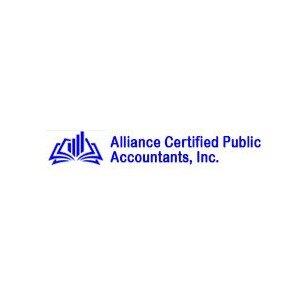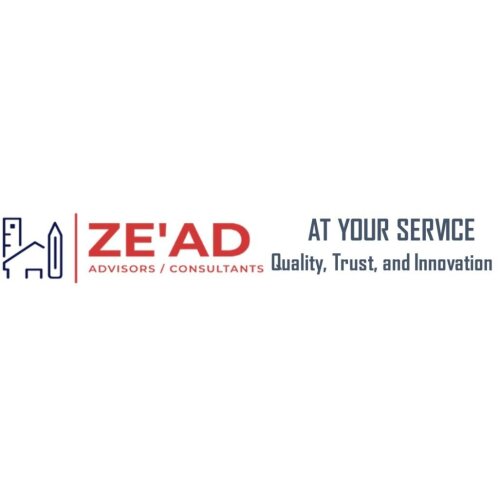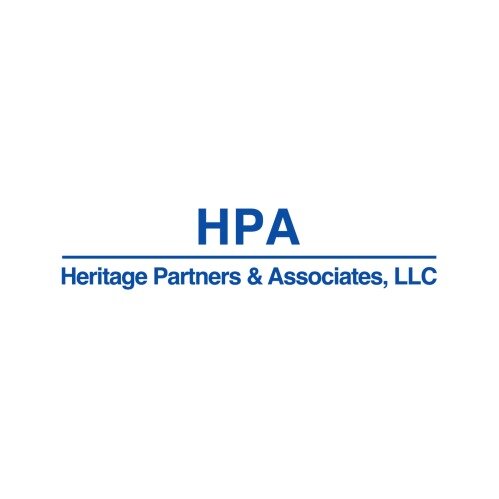Best Structured Finance Lawyers in Liberia
Share your needs with us, get contacted by law firms.
Free. Takes 2 min.
Or refine your search by selecting a city:
List of the best lawyers in Liberia

Alliance Certified Public Accountants, Inc. (Alliance CPAs, Inc.)
15 minutes Free ConsultationAbout Structured Finance Law in Liberia
Structured finance refers to complex financial transactions designed to meet particular funding needs of businesses or projects, typically by pooling assets and issuing securities backed by those assets. In Liberia, structured finance has been gaining prominence with the growth of sectors like mining, agriculture, real estate, and infrastructure. The legal framework supporting structured finance is influenced by both local laws and international best practices. Regulatory bodies, primarily the Central Bank of Liberia and the Liberia Revenue Authority, play significant roles in overseeing such transactions. Liberia’s structured finance landscape is emerging but offers opportunities for sophisticated finance arrangements within the bounds of the applicable legal and regulatory environment.
Why You May Need a Lawyer
Involvement in structured finance transactions often requires careful navigation of complex legal agreements, regulatory filings, and detailed due diligence. A lawyer specializing in structured finance in Liberia can assist you in the following situations:
- Structuring secured loans or syndicated loans involving multiple parties or asset pools
- Drafting or reviewing documents for asset-backed securities or collateralized debt obligations
- Facilitating cross-border transactions with foreign investors or lenders
- Ensuring compliance with local financial and tax regulations
- Addressing disputes or defaults involving structured finance arrangements
- Advising on risk allocation, insolvency, and enforceability of security interests
- Representing your interests in negotiations and communicating with regulatory bodies
Given the complexity of these transactions and the developing nature of the market in Liberia, legal representation reduces risk and helps ensure successful outcomes.
Local Laws Overview
Several aspects of Liberia’s legal framework are pertinent to structured finance transactions:
- Secured Transactions Law: Liberia has adopted modern secured transactions laws to facilitate the use of movable assets as collateral. Registration of security interests is required for enforceability against third parties.
- Banking and Financial Institutions Act: This act sets the legal framework under which banks and non-bank financial institutions operate, impacting the structure of finance deals they can engage in.
- Central Bank Regulations: The Central Bank of Liberia oversees and regulates structured finance activities, ensuring compliance with prudential standards.
- Tax Laws: Taxation of finance transactions is governed by the Liberia Revenue Authority, with relevant considerations for stamp duties, withholding taxes, and taxes on securities issuance.
- Insolvency and Bankruptcy Laws: These laws play a critical role in risk assessment by lenders and investors in structured finance transactions. They determine the process for asset recovery in default scenarios.
- Contract Law: Liberian contract law underpins the enforceability of structured finance agreements, including covenants, guarantees, and security interests.
It is important to consult with legal professionals well-versed in these laws to navigate structured finance transactions effectively.
Frequently Asked Questions
What is structured finance?
Structured finance refers to advanced financial arrangements that use complex legal and financial structures to meet specific needs, such as raising capital, managing risk, or pooling assets for investment purposes.
Who regulates structured finance in Liberia?
The Central Bank of Liberia is the main regulatory body for financial institutions and transactions, including structured finance. The Liberia Revenue Authority oversees tax aspects, and courts have jurisdiction over contract enforcement and insolvency issues.
Can foreign investors participate in structured finance deals in Liberia?
Yes, foreign investors are allowed to participate in structured finance transactions in Liberia, subject to compliance with investment, tax, and regulatory laws. Legal advice is recommended to navigate any restrictions or requirements.
How are security interests registered in Liberia?
Security interests in movable assets must be registered with the Collateral Registry managed by the Central Bank of Liberia to ensure priority and enforceability against third parties.
What types of assets can be used as collateral?
Movable assets such as accounts receivable, inventory, equipment, and vehicles can be used as collateral in Liberia, subject to registration and documentation requirements.
Are there restrictions on the types of structured finance instruments issued in Liberia?
Generally, instruments must comply with financial regulations and any other specific sector guidelines. The Central Bank may impose restrictions or set requirements for certain structured products.
What are the tax implications of structured finance?
Structured finance transactions may be subject to taxes such as stamp duties, withholding tax, and income tax. The Liberia Revenue Authority provides guidance and implements tax laws applicable to such transactions.
What happens if a borrower defaults on a structured finance agreement?
On default, the lender can enforce security interests through predetermined legal processes. Insolvency and bankruptcy laws will dictate asset distribution and creditor priority.
Is legal due diligence required for structured finance transactions?
Yes, legal due diligence is essential to ensure that proposed arrangements comply with laws, that the assets are suitable as collateral, and that the counterparties are creditworthy and authorized.
How can I find a qualified structured finance lawyer in Liberia?
Look for law firms that specialize in banking, finance, and corporate law. Referrals from industry bodies or regulatory authorities can also help in identifying experienced professionals.
Additional Resources
For those seeking more information or support related to structured finance in Liberia, the following organizations and resources may be useful:
- Central Bank of Liberia: Regulates banks and financial transactions, including structured finance.
- Liberia Revenue Authority: Provides guidance on tax treatment and compliance for financial transactions.
- Liberian Bar Association: Offers a directory of qualified lawyers specializing in finance and corporate law.
- Ministry of Finance and Development Planning: Oversees economic and financial policy, including structured finance initiatives.
- International Finance Corporation (IFC) - Liberia Office: Engages in private sector development and provides resources on investment structuring.
Next Steps
If you require legal assistance in structured finance in Liberia, follow these steps:
- Clearly define your financial goals and gather all relevant documentation related to your intended transaction.
- Consult with a lawyer or law firm experienced in structured finance and Liberian corporate law.
- Discuss your needs, potential risks, and legal requirements with the lawyer.
- Allow your legal adviser to conduct due diligence on counterparties, assets, and applicable regulations.
- Work collaboratively to draft and review contractual documents and register any required security interests.
- Stay in ongoing communication with your legal counsel, especially if changes occur or issues arise during the transaction.
Taking these steps will help ensure a secure and legally compliant structured finance transaction in Liberia.
Lawzana helps you find the best lawyers and law firms in Liberia through a curated and pre-screened list of qualified legal professionals. Our platform offers rankings and detailed profiles of attorneys and law firms, allowing you to compare based on practice areas, including Structured Finance, experience, and client feedback.
Each profile includes a description of the firm's areas of practice, client reviews, team members and partners, year of establishment, spoken languages, office locations, contact information, social media presence, and any published articles or resources. Most firms on our platform speak English and are experienced in both local and international legal matters.
Get a quote from top-rated law firms in Liberia — quickly, securely, and without unnecessary hassle.
Disclaimer:
The information provided on this page is for general informational purposes only and does not constitute legal advice. While we strive to ensure the accuracy and relevance of the content, legal information may change over time, and interpretations of the law can vary. You should always consult with a qualified legal professional for advice specific to your situation.
We disclaim all liability for actions taken or not taken based on the content of this page. If you believe any information is incorrect or outdated, please contact us, and we will review and update it where appropriate.
Browse structured finance law firms by city in Liberia
Refine your search by selecting a city.











